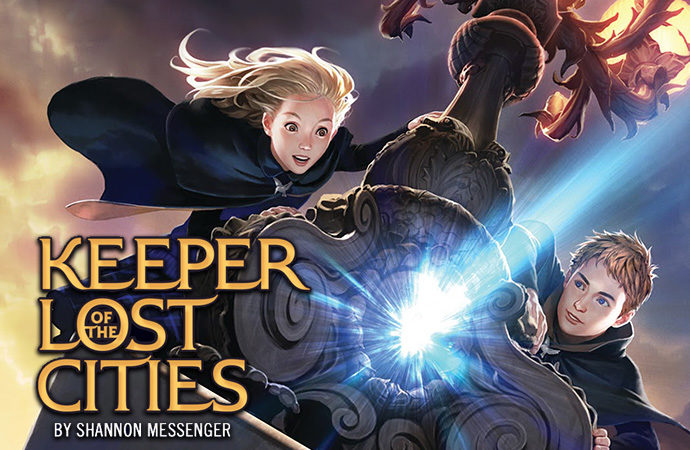Book Review: Keeper of the Lost Cities
The world is inundated with all kinds of books for all kinds of people, and that is a beautiful thing. What is more beautiful is when just the right book finds you at just the right time, blocking out all the noise from books crying to be read on your own shelves, never mind those of the local library/bookstore. This was one of those books.
“Keeper of the Lost Cities,” written by Shannon Messenger, struck me from the first synopsis and several-page read from Amazon’s “Look Inside” feature. Would it hold up to its promise? Could Messenger execute such a grand idea? Would this *finally* be the middle grade book of my dreams?
Yes. A resounding yes, on all accounts.
I have issues with the current middle grade market (or, rather, what publishers have determined that market to be). 1) Books can’t be lengthy; children don’t have that level of interest. 2) Books can’t be complicated, because children don’t have the intelligence to handle that. 3) The writing must be simplistic, because children won’t understand or work up to a level that they’re not at. WRONG.
This book flies in the face of all of these suppositions because, guess what? Not all children are alike, not all read at the same level, and they are much more used to learning than the adults who decree what is right for them are. This novel is a doorstopper of a debut children’s work, at 98,578 words (even for MG fantasy (as a debut), this is high). It has a complicated, developed plot with many characters, a whole new world, and it doesn’t rush through them. Messenger lets each moment breathe and exist on its own. Twice in the book I had tears in my eyes because I grew to know and love Sophie Foster and *felt* was she was going through. I wouldn’t be emotionally moved if any of these moments were truncated. The writing itself was conversational and easy, simple but not simplistic. It’s perfect for what the middle grade market should be, the one that still largely exists in my head.
Now, that’s not to say that this book is without faults. There are a few, but the overwhelming positivity drowns them out. I love the close third-person past-tense POV, getting Sophie’s thoughts as narrative, but sometimes Messenger turns them into third-person present, which is awkward. There are, also, reminiscences of Harry Potter, some more obvious than others (curmudgeonly tutors), but in this post-HP world, I don’t think there’s any magic school-related book that won’t be compared to that seminal work. It’s not enough to detract from or hinder the story in any way.
The biggest Harry Potter thought I came away from this book with was: “This is what HP 1 SHOULD HAVE BEEN.” Every time I reread Sorcerer’s/Philosopher’s Stone, I am disappointed by how little detail and time are given to the development of Harry’s entrance into the wizarding world and first year at school. The later books are much better for that (because Rowling’s success meant more leeway on book length), but this first book, at typical middle-grade fantasy length (75k words), suffered from that lack of detail. Keeper of the Lost Cities does not have this problem. Messenger told the story she needed to tell in the way it was meant to be told. The fact that it first found an agent, then a publisher, followed by an audience with now three sequels published proves that middle grade audiences CAN and WILL read lengthier books if the story requires it.
So, for anyone wondering if they should read the book, I think it’s pretty clear that my opinion on that is YES. It’s easy enough for children with interest enough for adults. It’s what I want the market to grow into — what I hope to contribute myself with my own writing: middle grade books that are not dumbed down, that are complex and well-developed, that are “young” only in the innocence and themes they portray.
I personally love coming-of-age stories because, even if readers aren’t 11, 12, or 13 anymore, everyone can relate to them. In our own adult lives even, we come across those same feelings of fear and not belonging we felt when we were young as we make different life choices.
Exploring how children develop and truly enter the world for the first time, when their minds are still open to the possibility of magic in the universe before they become jaded and cynical amid everyday realities is the greatest gift of reading and writing middle grade fiction. Keeper of the Lost Cities is one of the best I’ve read in this category, it lives up to all that I want the middle grade category to become, and it will be my “spirit book” as I journey forth in my own MG fantasy writing adventures. I can’t wait to dive into book 2: Exile (to be quickly followed by books 3 and 4, I’m sure).


